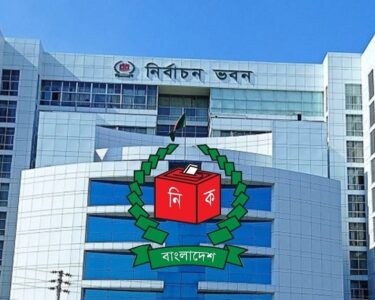The relationship between Bangladesh and India has developed over a long and complex historical context. Various agreements and understandings between the two countries have formed the basis of bilateral relations. But in the implementation of these agreements, the disparity of the agreements and the opportunity for one-sided India have created controversy. It is time to analyze the important agreements between India and Bangladesh. There is public interest in issues arising from the implementation of agreements, discrimination and some undisclosed agreements. The agreement signed between Sheikh Mujibur Rahman and Indian Prime Minister Indira Gandhi on 15 March 1972 was an important bilateral agreement after the independence of Bangladesh. The main objective of this treaty was to define the border and establish peace between the two countries. Under the agreement, border lines are precisely demarcated and various measures are adopted to ensure border security. These include border arms control and measures to prevent arms smuggling.
Besides, the agreement provides a framework for maintaining peace and security along the border. However, even after demarcation, disputes between the local people in some border areas persisted. In particular, the problem of border disputes still exists in some border areas of Northeast India. There have been many obstacles in the implementation of the agreement to resolve these border issues, which have affected the relationship between the two countries.
On December 5, 1996, an important agreement was signed between Bangladesh and India on the sharing of Ganga water. Under this agreement, specific rules for the use of Ganga water are laid down. The agreement provides a framework for sharing water during the rainy and dry seasons. Along with this, a system is developed to exchange water usage information and monitor water flows.
The agreement established a transparent system for the distribution of Ganges water, but some problems arose in implementation. Due to the decrease in the water flow of the Ganges during the dry season, there is a negative impact on the agriculture and livelihood of Bangladesh. Under the agreement, water flow control was promised, but in reality it was largely unfulfilled. Some complaints have been raised by the Bangladesh government to address the water crisis, which is an example of weak implementation of the agreement.
2012 An agreement was signed on the construction of Tipaimukh Dam. The agreement commits to reducing the dam's construction process and environmental impact in Bangladesh. Under the agreement, certain steps are taken to minimize environmental damage during dam construction.
However, the construction of the dam has changed the river flow and environmental conditions in the southeastern part of Bangladesh. The construction of dams has increased the impact of hydropower projects and environmental concerns. Although the treaty promised to reduce environmental damage, implementation has not been adequate. Concerns have been expressed by local people and environmentalists.
Environmentalists fear that the construction of this dam will have an immediate and long-term negative impact on the livelihood, economy, and biodiversity of the people of the region along with environmental damage in the 275.5 square kilometer area of the Surma, Kushiara and Meghna basins.
When the reservoir is filled prior to operation of Tipaimukh Dam, the water flow downstream will naturally be interrupted, which will disrupt the natural environment and eco-system of the area. Will adversely affect fish reproduction. (Bangla News 24) The Tariff and Trade Agreement of 2015 was signed with the aim of developing and facilitating trade relations between Bangladesh and India. The agreement establishes new rules for managing tariffs and reducing trade barriers. However, some problems have arisen in the implementation of this agreement. There are some barriers to entry of Bangladeshi products and difficulties in entering the Indian market. Inconsistencies in customs administration and trade barriers have created problems for traders. As a result, some challenges have arisen in implementing the objectives of the agreement.
In 2018, an agreement was signed for cooperation in the field of youth development and education. This agreement was adopted with the aim of undertaking joint projects in the field of youth development and education of the two countries.
Under the agreement, cooperation is provided for educational exchange and youth development projects. However, some controversies have arisen in the early stages. There have been some complaints about the amount of support and lack of effective action on youth development projects. Some agreements and understandings between Bangladesh and India are yet to be published, raising questions about the transparency of the relationship. These undisclosed agreements include border security, trade terms and hydropower projects.
Border Security Agreements: There are some undisclosed agreements related to border security, which deal with border security and troop deployment. Details of the deal have not been made public, raising questions about the legitimacy of the move to strengthen border security.
Undisclosed Trade Agreements: Details of some trade agreements have not been published. These agreements may include tariff and customs matters, which are not compatible with Bangladesh's internal trade policy.
Hydropower Projects: There are some undisclosed agreements related to hydropower projects, which may affect the environmental conditions and river flow of Bangladesh. It is not clear whether environmental concerns are being addressed as the details of these agreements are not published.
Bilateral relations between Bangladesh and India have been established through various agreements and understandings. Through these agreements, development of relations and cooperation has been ensured. However, implementation has created disparity and controversy. River water distribution, trade issues, border security and environmental concerns are considered by many. In the future, balanced and transparent discussions on these issues are necessary, so that bilateral relations can be stronger and more integrated. It is very important to maintain understanding and cooperation between the two countries in the implementation of the agreement and the development of relations.
Author: Poet, researcher, political analyst
[email protected]
B. Dr. Authority is not responsible for the opinion
Bangladesh /MP
👇Follow more 👇
👉 bdphone.com
👉 ultraactivation.com
👉 trainingreferral.com
👉 shaplafood.com
👉 bangladeshi.help
👉 www.forexdhaka.com
👉 uncommunication.com
👉 ultra-sim.com
👉 forexdhaka.com
👉 ultrafxfund.com
👉 ultractivation.com
👉 bdphoneonline.com




